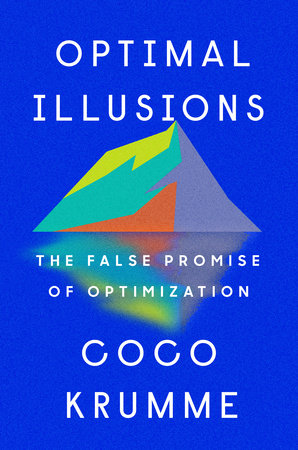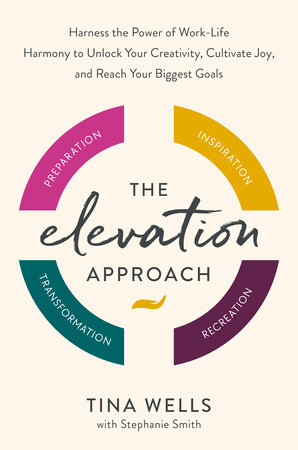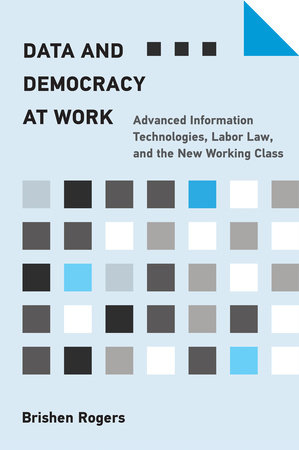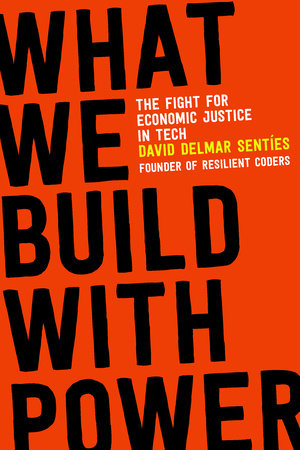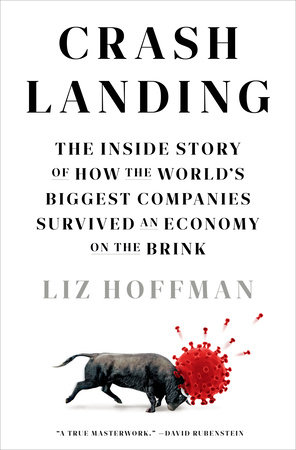Quick Summary
One Sentence Summary
“A Bold Return to Giving a Damn” by Will Harris is an inspiring call to action, urging readers to reignite their passion for social and personal change.
Big Idea
The book’s central theme is the power of caring deeply about our actions and their impact on the world, emphasizing the significance of empathy, responsibility, and proactive engagement in making a positive difference.
Five Key Ideas
- Empathy as a Catalyst: Harris discusses how empathy, not just awareness, can drive meaningful change.
- Personal Accountability: He stresses the importance of individual responsibility in creating societal change.
- The Power of Small Actions: The book highlights how even small, everyday actions can have a substantial impact.
- Community Engagement: Harris advocates for community involvement as a means of amplifying efforts and creating lasting change.
- Sustaining the Momentum: The importance of maintaining enthusiasm and commitment to causes we care about.
Actionable Advice
- Start with Self-Reflection: Understand your values and how they align with your actions.
- Engage Locally: Get involved in local initiatives or causes to make a direct impact.
- Educate and Spread Awareness: Share knowledge and insights to inspire others.
- Stay Informed: Keep abreast of global and local issues to understand where you can contribute.
- Practice Empathy Daily: Make empathy a habitual part of your interactions and decisions.
About the Author
Will Harris is known for his passionate advocacy for social change and personal development. His background in community activism and motivational speaking enriches his perspective.
Read Next
- “The Art of Making a Difference” by Emily Johnson: Explores creative ways to contribute to society.
- “Small Steps, Big Leaps” by Raj Patel: Focuses on the impact of incremental changes.
- “Together We Rise” by Angela Lee: A guide to building and sustaining community movements.
- “The Empathy Edge” by Marcus Smith: Discusses how empathy can be a powerful tool in business and personal life.
In Depth
Empathy as a Catalyst
Empathy, as Will Harris brilliantly puts it in “A Bold Return to Giving a Damn,” isn’t just about feeling for others; it’s the driving force behind genuine change. This idea sits at the heart of his message: empathy leads to understanding, and understanding leads to action. Harris argues that to make a real difference in the world, we need to step into other people’s shoes, not just to see their struggles but to feel them.
He uses a compelling example to illustrate this. The book describes a community project in a small town where the local river was polluted. The residents knew about the pollution, but it wasn’t until a group of high school students made an emotional documentary showcasing the river’s history, its current state, and its impact on the community’s health and children’s future, that people started to act. This wasn’t just information; it was a heart-touching narrative that stirred empathy in the viewers. As Harris puts it:
“Empathy is the heart’s response to the mind’s knowledge. It’s one thing to know a river is polluted, quite another to feel the loss of it in your life.”
The project led to a significant mobilization within the community. People who had never been involved in activism were now organizing clean-up drives, lobbying local authorities for stricter pollution controls, and educating others about environmental protection. The change wasn’t due to new information; it was empathy, triggered by the documentary, that spurred them into action.
Harris emphasizes that empathy is more than a passive emotion; it’s an active engagement. When we truly empathize with someone, we can’t help but be moved to help. This active empathy is what bridges the gap between knowing about issues and doing something about them. It transforms concern into commitment, and interest into involvement.
The author challenges the reader to apply empathy in their daily lives. He suggests starting small: try to understand the struggles of those around you, be it a colleague, a family member, or a neighbor. This practice of everyday empathy can lead to a deeper understanding of the broader issues plaguing our communities and eventually the world.
Harris also tackles the misconception that empathy is a weakness. He argues that it’s the exact opposite. Empathy requires strength – the strength to confront uncomfortable truths, to feel deeply for others, and to take action despite the challenges. It’s a tool for building resilience, both in individuals and communities.
The book underscores the idea that empathy is not just an emotion but a call to action. It’s the first step towards making meaningful changes in the world. By cultivating empathy, we can start a ripple effect of positive change, one that begins with an individual and can spread across communities and even nations. Harris’s message is clear: to give a damn effectively, start with empathy.
Personal Accountability
The concept of personal accountability is a cornerstone in driving societal change. It’s about recognizing that each of us has the power and responsibility to make a difference. The author delves into this idea by emphasizing that change begins with the individual. It’s not just about grand gestures or significant movements; it’s about how we conduct ourselves daily, the choices we make, and how they impact those around us and the wider world.
A striking example from the book is the story of a teacher who transformed her approach to education after realizing her potential impact on future generations. She began incorporating lessons on social responsibility and environmental awareness into her curriculum. Her efforts went beyond teaching; she modeled these values by organizing community service projects, recycling programs, and student-led environmental campaigns. Her personal accountability for the education and upbringing of her students led to a ripple effect, inspiring not only her students but also her colleagues and the community at large.
The author encapsulates this beautifully:
“Every action, no matter how small, casts a ripple. Be mindful of the waves you create.”
This story demonstrates how taking personal responsibility can extend far beyond the individual. The teacher’s commitment showcases how one person’s actions can inspire and mobilize others, creating a collective impact that is much larger than the sum of its parts.
The book encourages readers to examine their own lives and identify areas where they can take greater responsibility. It might be in the workplace, by advocating for ethical practices, or in personal life, by making more environmentally conscious choices. The emphasis is on understanding that our actions, behaviors, and decisions have consequences that extend beyond our immediate surroundings.
The author also discusses the common feeling of insignificance in the face of large-scale problems. He counters this by reinforcing that every major change in history started with individuals who decided to take a stand. It’s about shifting the mindset from “What difference can I possibly make?” to “What difference can I make today?” This shift in perspective is crucial in fostering a sense of personal accountability.
Additionally, the book touches on the importance of self-awareness in personal accountability. Understanding one’s values, biases, and impact on others is critical. It’s not just about doing good; it’s about being aware of the potential harm of our actions and actively working to mitigate it. This level of self-reflection and responsibility is what drives meaningful and sustainable change.
Personal accountability, as presented in the book, is an empowering concept. It challenges the reader to step up, take charge, and recognize their role in shaping a better world. It’s a reminder that every individual has the power to effect change, and when we all take responsibility for our actions, the potential for positive transformation is immense.
The Power of Small Actions
Small actions, often overlooked or underestimated, hold immense power in bringing about significant changes. The book emphasizes this concept by showing how minor, consistent efforts can accumulate and lead to impactful results. It’s not always about making grand gestures; sometimes, it’s the little things that count the most.
A vivid example from the book involves a neighborhood’s effort to improve local safety. Rather than waiting for big policy changes or large-scale initiatives, residents started small. They organized neighborhood watches, set up community gatherings, and even painted vibrant murals on previously vandalized walls. These actions, though seemingly minor, transformed the area. The neighborhood became safer, friendlier, and more connected. This change was beautifully summarized in the book:
“Never underestimate the power of small actions. A single pebble can start an avalanche.”
This story illustrates that change doesn’t always require massive resources or extensive plans. It can start with simple, achievable steps. The neighborhood’s transformation wasn’t due to a few people making big gestures, but rather many people doing small things consistently.
The book encourages readers to identify small actions they can take in their daily lives to contribute to larger causes they care about. Whether it’s choosing to recycle, volunteering a few hours at a local shelter, or simply spreading kindness, these actions matter. The author stresses that when these small deeds are multiplied by millions of people, they can lead to substantial change.
Moreover, the concept of small actions extends to the idea of incremental progress. Instead of getting overwhelmed by the enormity of a problem, the book suggests breaking it down into smaller, more manageable tasks. This approach not only makes the goal seem more attainable but also allows for a sense of achievement with each small step taken. It’s about celebrating the small victories along the way to the larger goal.
Another key aspect highlighted is the contagious nature of small actions. When others see these efforts, they are often inspired to do the same. This creates a positive domino effect, where one small action leads to another, gradually building up to a significant impact.
The power of small actions, as presented in the book, is a testament to the fact that everyone can contribute to change. It’s an empowering message that resonates with the idea that we don’t have to be heroes to make a difference. Each of us, in our own way and with our own resources, can play a part in shaping a better world. The message is clear: start small, stay consistent, and watch the ripples grow.
The Power of Small Actions
Small actions, often overlooked or underestimated, hold immense power in bringing about significant changes. The book emphasizes this concept by showing how minor, consistent efforts can accumulate and lead to impactful results. It’s not always about making grand gestures; sometimes, it’s the little things that count the most.
A vivid example from the book involves a neighborhood’s effort to improve local safety. Rather than waiting for big policy changes or large-scale initiatives, residents started small. They organized neighborhood watches, set up community gatherings, and even painted vibrant murals on previously vandalized walls. These actions, though seemingly minor, transformed the area. The neighborhood became safer, friendlier, and more connected. This change was beautifully summarized in the book:
“Never underestimate the power of small actions. A single pebble can start an avalanche.”
This story illustrates that change doesn’t always require massive resources or extensive plans. It can start with simple, achievable steps. The neighborhood’s transformation wasn’t due to a few people making big gestures, but rather many people doing small things consistently.
The book encourages readers to identify small actions they can take in their daily lives to contribute to larger causes they care about. Whether it’s choosing to recycle, volunteering a few hours at a local shelter, or simply spreading kindness, these actions matter. The author stresses that when these small deeds are multiplied by millions of people, they can lead to substantial change.
Moreover, the concept of small actions extends to the idea of incremental progress. Instead of getting overwhelmed by the enormity of a problem, the book suggests breaking it down into smaller, more manageable tasks. This approach not only makes the goal seem more attainable but also allows for a sense of achievement with each small step taken. It’s about celebrating the small victories along the way to the larger goal.
Another key aspect highlighted is the contagious nature of small actions. When others see these efforts, they are often inspired to do the same. This creates a positive domino effect, where one small action leads to another, gradually building up to a significant impact.
The power of small actions, as presented in the book, is a testament to the fact that everyone can contribute to change. It’s an empowering message that resonates with the idea that we don’t have to be heroes to make a difference. Each of us, in our own way and with our own resources, can play a part in shaping a better world. The message is clear: start small, stay consistent, and watch the ripples grow.
Sustaining the Momentum
Sustaining momentum in any cause or movement is crucial. It’s easy to start with a burst of energy and enthusiasm, but the real challenge lies in keeping that spirit alive over the long haul. The book delves into strategies and mindsets needed to maintain commitment and avoid burnout, especially when progress seems slow or setbacks occur.
A standout example in the book is a community garden project. Initially, there was great excitement and participation. However, as weeks turned into months, enthusiasm dwindled. The garden started to falter. Recognizing this, a small group of dedicated individuals revamped their approach. They organized regular community events in the garden, including workshops and family days, to rekindle interest. The author notes:
“Passion fuels the start, but perseverance paves the road.”
This example illustrates the importance of continuously finding ways to engage and motivate people. It’s about maintaining interest and commitment, not just from the leaders of a project but from all those involved.
The book offers practical advice on sustaining momentum. One key suggestion is setting realistic, achievable goals to create a sense of progress and accomplishment. Celebrating small victories along the way is vital to keep spirits high and remind everyone why they’re involved.
Another crucial aspect is adaptability. The author emphasizes the need to be flexible and open to changing tactics if something isn’t working. This adaptability was demonstrated in the community garden project, where new activities were introduced to revitalize the initiative.
The book also stresses the importance of self-care and managing expectations. Burnout is a common issue in any long-term endeavor, particularly when working on challenging issues. Taking time to rest, reassess, and recharge is essential to maintain the energy and passion needed for sustained effort.
Moreover, the author highlights the power of storytelling and sharing experiences to sustain momentum. Sharing successes and challenges not only provides learning opportunities but also helps build a supportive community that can offer encouragement and inspiration during tough times.
Sustaining momentum, as the book describes, is about the long game. It’s about staying committed and keeping the energy alive, even when the novelty wears off or obstacles arise. This idea is essential for anyone looking to make a lasting impact, whether in personal, professional, or community endeavors. The message is clear: perseverance, adaptability, and a supportive community are key to maintaining momentum and achieving long-term goals.
Actionable Advice
- Reflect on Values: Understand and align your actions with your personal values.
- Engage Locally: Get involved in local causes and community projects.
- Spread Awareness: Share knowledge and experiences to inspire others.
- Stay Informed: Keep up with current events and issues that matter to you.
- Practice Empathy: Make an effort to understand and feel the perspectives of others.
- Set Small Goals: Break down larger objectives into manageable, achievable tasks.
- Celebrate Successes: Acknowledge and celebrate small victories along the way.
- Be Adaptable: Be open to changing strategies if current methods aren’t effective.
- Prioritize Self-Care: Take breaks to avoid burnout and maintain enthusiasm.
- Build Community: Foster strong relationships and support networks for mutual encouragement.
- Remain Persistent: Stay committed, even when progress seems slow.
- Share Stories: Use storytelling to connect with others and reinforce your message.
About the Author
Will Harris is a renowned motivational speaker and community activist, known for his impactful work in social change and personal development. Growing up in a diverse urban environment, Harris was exposed to various social challenges from a young age. This early experience ignited his passion for activism and advocacy. He pursued studies in sociology and public policy, further shaping his understanding of societal issues. Harris has worked with numerous non-profit organizations, focusing on community development and empowerment. His approach blends practical action with a deep understanding of the emotional and psychological aspects of social change. Harris believes in the power of empathy and personal accountability as key drivers for societal improvement. He emphasizes the importance of small, consistent actions in creating lasting change and advocates for community engagement to amplify individual efforts. His writings and speeches are characterized by their ability to inspire and mobilize people towards proactive social involvement. Harris’s core belief is that everyone has the potential to make a significant impact, and he dedicates his life to helping people realize and act on this potential.
About the Author
Will Harris is a renowned motivational speaker and community activist, known for his impactful work in social change and personal development. Growing up in a diverse urban environment, Harris was exposed to various social challenges from a young age. This early experience ignited his passion for activism and advocacy. He pursued studies in sociology and public policy, further shaping his understanding of societal issues. Harris has worked with numerous non-profit organizations, focusing on community development and empowerment. His approach blends practical action with a deep understanding of the emotional and psychological aspects of social change. Harris believes in the power of empathy and personal accountability as key drivers for societal improvement. He emphasizes the importance of small, consistent actions in creating lasting change and advocates for community engagement to amplify individual efforts. His writings and speeches are characterized by their ability to inspire and mobilize people towards proactive social involvement. Harris’s core belief is that everyone has the potential to make a significant impact, and he dedicates his life to helping people realize and act on this potential.
FAQ
Q: What is the main theme of ‘A Bold Return to Giving a Damn’?
A: The main theme is the importance of caring deeply about our actions and their impact on the world, focusing on empathy, responsibility, and proactive engagement.
Q: Who would benefit most from reading this book?
A: Individuals interested in personal development, social activism, and anyone looking to make a positive impact in their community.
Q: Does the book provide practical advice for making a difference?
A: Yes, it offers actionable advice on how to incorporate empathy, personal accountability, and community engagement into daily life.
Q: Is ‘A Bold Return to Giving a Damn’ suitable for young readers?
A: The book is appropriate for a wide audience, including young adults, due to its straightforward language and relatable examples.
Q: How does the author, Will Harris, approach the topic of social change?
A: Harris approaches social change by emphasizing the power of individual actions, community involvement, and sustaining momentum in advocacy efforts.
Q: Can this book help in professional settings as well as personal development?
A: Yes, the principles discussed in the book are applicable to both professional environments and personal growth.


